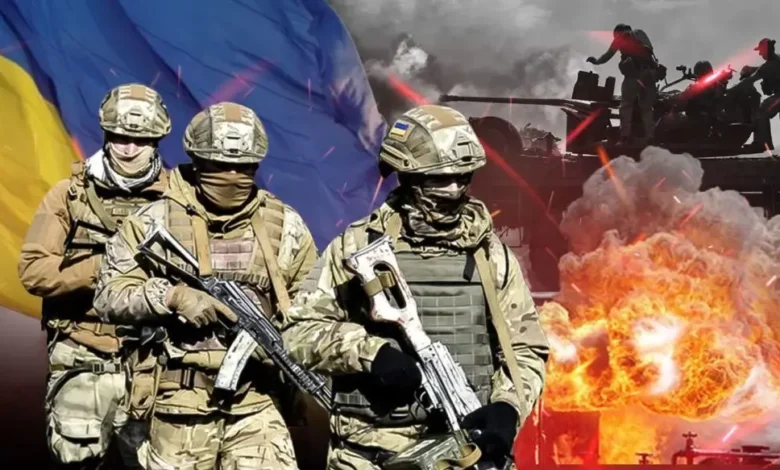The Great War: Three Years of Resistance of Ukrainians in the Eyes of the World Media

For three years, the world witnessed Ukraine’s incredible determination to defend its independence, as well as the changes that took place not only on the battlefield, but also in the world political arena. Kyiv, having become a symbol of indomitability, today hosts not only high-ranking representatives of the EU, but also leaders of states and governments of Western countries, who have gathered to discuss the next steps in the fight against the Russian Federation. Foreign mass media are actively analyzing the events. Analysts and journalists note that the war, which we did not choose, today forces the world to rethink its strategic positions, and every word of the leaders becomes a powerful signal for future decisions.
Liberation – France. Paris Libération analyzes the situation:
“The new president of the United States lives for one day and notices only the money that is waved in front of his nose, and after him at least a flood. What he doesn’t realize is that if he lets Putin win, the flood could wash him away. Is it possible today, three years after the start of the war, to save Ukraine and Europe from the paws of the Russian bear? There is no alternative here.
We must remember the tens of thousands of Ukrainian men and women who died defending their country, and those who continue to fight, overcoming deadly fatigue. We must remember Volodymyr Zelensky, who never showed fear, and last Sunday, without hesitation, declared his readiness to put his powers on the scales – if this would bring guarantees of protection for Ukraine.”
The Irish Times – Ireland. Even before Trump, Kyiv could not fully rely on the USA and Europe, – notes The Irish Times of Dublin:
“Trump did not forgive Zelenskyi for his refusal to open an investigation into the business deals of the son of former US President Joe Biden in Ukraine.
… And Trump is not the first Western leader to betray Ukraine. In 1994, the United States and Great Britain acted as guarantors of the Budapest Memorandum, under the terms of which Ukraine gave up its nuclear weapons in exchange for a promise of security. When Russia seized Crimea, neither Washington nor London batted an eyelid. The leaders of France and Germany preferred to calm Putin down. Biden gave Ukraine just enough weapons to continue the fight, but not enough to win.”
Jyllands-Posten – Denmark. The Danish Jyllands-Posten joins the demands voiced by the head of the Polish government:
“Concrete countermeasures are needed, and recently Polish Prime Minister Donald Tusk proposed three simple and sensible steps to strengthen the European front against Putin here and now. First, it is about increasing support for Ukraine, and at the expense of Russia’s funds, Russian assets worth more than 200 billion euros were confiscated in Europe.
…Secondly, it is necessary to increase European deterrence measures against Russia – by increasing air patrols and military presence in the Baltic Sea, as well as on the borders with Russia. Thirdly, the European Union needs to immediately establish rules for joint financing of initiatives in the field of defense and security.”
The Guardian notes:
“The war in Ukraine has become a test for European unity and stability. The publication emphasizes that, despite internal differences, EU countries continue to support Ukraine by providing military and humanitarian aid. It is also noted that the conflict has forced Europe to rethink its energy policy and reduce dependence on Russian energy carriers.”
Associated Press draws attention to the fact that the war in Ukraine led to significant changes in global geopolitics. In particular, the publication notes:
“Russia’s aggression has united Western countries in countering a common threat, which has led to increased sanctions against Moscow and an increase in NATO’s military presence in Eastern Europe. It is also emphasized that the conflict has affected the world economy, causing energy and food prices to rise.”
Financial Times analyzes the internal situation in Russia against the background of the three-year war.
“Despite the Kremlin’s attempt to control the information space, discontent among the population is growing due to economic difficulties and losses at the front. It is also emphasized that international isolation and sanctions have a negative impact on the Russian economy, limiting its development and access to technology.”





